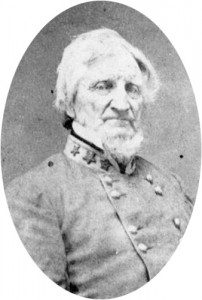The war caused governments North and South to increase restrictions on civilian rights. As Encyclopedia Virginia points out, on March 1, 1862 President Jefferson Davis declared martial law in Richmond, and “The Confederate government also prohibited the sale of liquor in 1862.” The following article seems to suggest that the Assistant Provost Marshal office was involved in conducting a sting operation to make sure retailers were complying with the prohibition of alcohol sales. Apparently druggists could (or at least thought they could) sell alcohol under a doctor’s orders.
From the Richmond Daily Dispatch April 18, 1862:
Selling liquor by the druggists.
–Several of the city papers alluded, a short time since, to the fact that four of the druggists doing business here had been arrested by order of the Assistant Provost Marshal for selling liquor in an unauthorized manner. We are enabled, by the courtesy of one of the parties concerned, to lay before our readers an official copy of the proceedings of the Court Martial in their case. In doing so, it is proper to say, that on their arraignment they severally pleaded that the order to which they had sold the liquor was believed by them to have emanated from a resident city physician, (as directed by law,) but it was afterwards ascertained that the same had been concocted in the office of the Assistant Provost Marshal. With this explanation, we submit the proceedings of the Court Martial, which read as follows:
Headq’rs Department of Henrico, Richmond, Va.,April 14, 1862.
General Orders, No. 14.
At a general Court-Martial, assembled in Richmond, Va., pursuant to paragraph two, Special Orders No. 57, headquarters department of Henrico, issued April 2d, 1862 were arraigned and tried–1st, A. Bodeker; 2d, John T. Gray; 3d; John W. Frayser; 4th, R. W. Powers, upon the following charge:
[charge.]
Sale or disposition of spirituous liquors, or other intoxicating beverages. To which charge the prisoners severally pleaded not guilty, and the Court, having considered the evidence, find the accused, each and severally, of the charge not guilty, and do, therefore, pronounce that the said A. Bodeker, John T. Gray, John W. Frayser, and R. W. Powers, are fully and honorably acquitted.
II. The proceedings in the foregoing cases are disapproved of by the Reviewing Officer, who considers that the evidence presented to the Court fully sustains the charge preferred.
The prisoners are hereby ordered to be released from confinement, and they may congratulate themselves upon having escaped merited punishment.
By order of
Brig.Gen. John H Winder.
L. R. Page, A. B. General.
A native of Maryland, John Henry Winder served as a career United States army officer until the aftermath of Fort Sumter. Early in his Confederate service
He was … appointed brigadier-general in the Confederate army and made inspector-general of the camps around Richmond, which included for the first few months supervision of the prisons. He afterward commanded the Department of Henrico, which is the county in which Richmond is situated, and was also provost-marshal-general of Richmond, where his strictness created considerable feeling against him.
Well, I guess you need a marshal if you impose martial law.
Winder’s later Civil War career included oversight of prisons in Alabama and Georgia.

